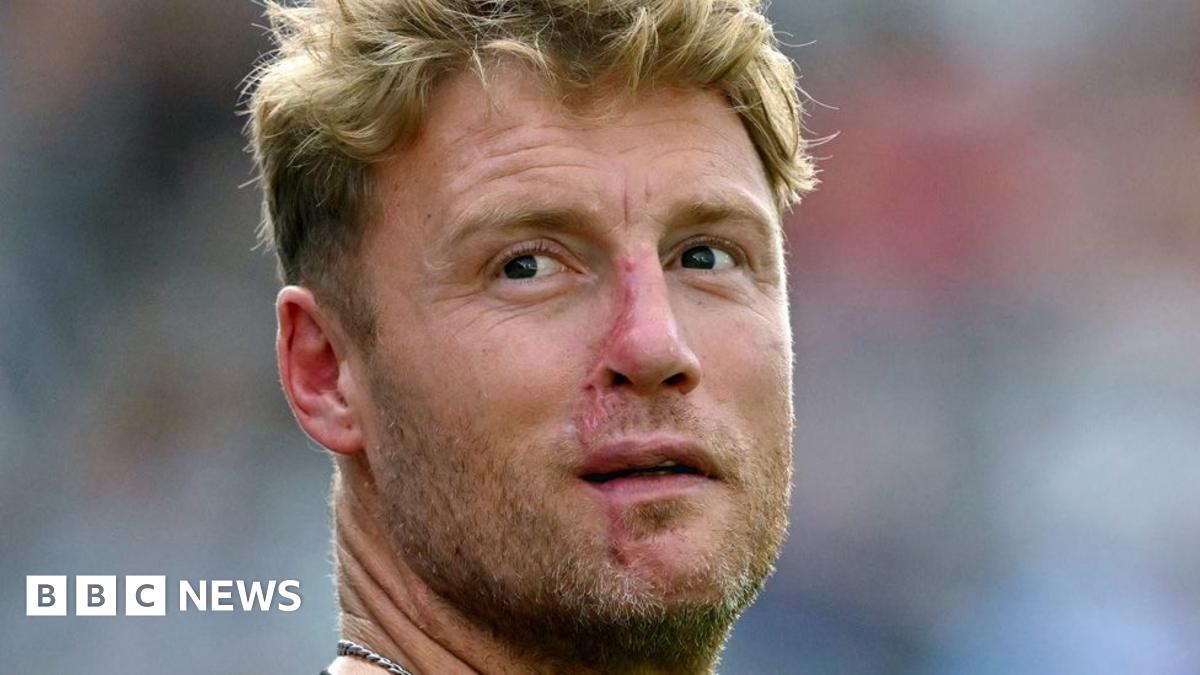Flintoff's Terrifying Top Gear Crash Experience: A Near-Fatal Accident and Its Aftermath
Former England cricketer and Top Gear presenter, Andrew Flintoff, suffered a serious crash during filming for the BBC motoring show, leaving fans and colleagues shocked and concerned. The incident, which occurred in December 2022, highlighted the inherent risks involved in high-speed driving, even with experienced professionals behind the wheel. This article delves into the details of the accident, its impact, and the subsequent discussions surrounding safety protocols in television production.
The Crash: A Horrific Sequence of Events
Flintoff was driving a vintage car at the Top Gear test track when he lost control, resulting in a significant impact. The precise details remain somewhat unclear, with the BBC releasing limited information to respect Flintoff's privacy and ongoing recovery. However, reports suggest the vehicle veered off the track and flipped, leading to substantial damage to the car and serious injuries to the presenter. Eyewitnesses described the scene as "terrifying," underscoring the gravity of the situation. The speed at which he was traveling, and any contributing factors, remain officially unconfirmed.
The Aftermath: Recovery and Repercussions
The accident sent shockwaves through the Top Gear community and beyond. Flintoff was rushed to the hospital, receiving treatment for significant injuries. While the extent of his injuries hasn't been publicly detailed extensively, statements from the BBC emphasized the severity of the incident and the presenter's need for extensive rehabilitation. The incident prompted the immediate suspension of filming and a thorough review of safety procedures on the set.
Safety Concerns and the Future of Top Gear
The Flintoff crash has reignited discussions about safety protocols in high-octane television productions. Critics have questioned whether sufficient safety measures were in place, prompting calls for increased transparency and accountability from the BBC. This incident serves as a stark reminder of the inherent dangers involved in high-speed driving, even under controlled conditions. The BBC's commitment to improved safety procedures following the accident is crucial to maintain the integrity and ethical responsibility of their programming. Changes to filming techniques, vehicle selection, and driver training protocols are likely to be implemented to minimize the risk of future incidents.
Public Response and Media Coverage
The incident generated extensive media coverage, with news outlets worldwide reporting on the crash and its aftermath. Public concern for Flintoff's wellbeing was widespread, reflected in an outpouring of support on social media. The incident has also sparked debates about the balance between entertainment and safety in television productions, prompting a critical re-evaluation of risk assessment practices within the industry.
Looking Ahead: Lessons Learned and Future Implications
Flintoff's accident serves as a pivotal moment for the automotive television industry. While the full extent of the investigation’s findings may not be immediately public, the implications are clear. The incident underlines the importance of rigorous safety protocols, consistent risk assessments, and a commitment to prioritizing the well-being of those involved in the production process. This event is likely to influence future filming practices not just at Top Gear, but across the industry, leading to greater transparency and a more stringent focus on safety. The ongoing recovery of Andrew Flintoff remains paramount, and the entire industry awaits his full recovery and return.
Keywords: Andrew Flintoff, Top Gear, crash, accident, BBC, motoring show, safety, investigation, recovery, television production, risk assessment, high-speed driving, vintage car, injury, rehabilitation.
Call to Action: Share your thoughts and concerns regarding safety in television productions in the comments below. Let's discuss how we can improve safety protocols for future productions.

